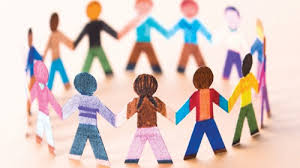Studying youth and community work provides you with a mix of practical and academic skills that can be used in many key community-based roles
Job options
Jobs directly related to your degree include:
- Advice worker
- Community development worker
- Community education officer
- Family support worker
- Probation officer
- Social worker
- Teaching assistant
- Youth worker
Jobs where your degree would be useful include:
- Adult guidance worker
- Arbitrator
- Careers adviser
- Chaplain
- Detective
- Learning mentor
- Outdoor activities/education manager
- Paralegal
- Police officer
- Secondary school teacher
- Volunteer coordinator
Work experience
Paid or voluntary experience will increase your skills and help make you more employable. Experience is particularly important if you want to go into teaching or an advisory or social care role. For classroom experience, contact local schools to arrange visits to observe teachers or to help with non-teaching duties.
Get involved in your local community and build up some experience. When looking for opportunities, highlight any sport, language or performing arts skills that you have. Take advantage of work placements offered as part of your course, or look at finding one in a youth or community centre, school or college.
Typical employers
You can find employment in youth and community work with a range of employers, including:
- local authority youth services
- education departments
- voluntary and charitable organisations
- churches
- other community-based groups.
Professions include:
- community work
- drugs services
- education
- health
- housing
- trainee probation
- welfare rights
- youth justice
- youth work.
Skills for your CV
Many courses combine university-based learning with supervised practice placements, testing your knowledge in real youth and community situations. You learn how to engage with, support and motivate young people so that they can explore and understand their ideas, values and beliefs and make a successful transition to adulthood.
Employers are also interested in the broader skills you acquire studying youth and community work. These include:
- skills in critical thinking, analysis and reflection that can be applied during your fieldwork practice
- empathy, and a commitment to equality and non-judgemental practice
- problem-solving skills developed by integrating theory and practice
- presentation skills, and oral and written communication skills
- management, supervision and organisational skills
- the ability to work independently and to deadlines
- fundraising and advocacy skills
- teamwork skills and the ability to work with people from all backgrounds.








